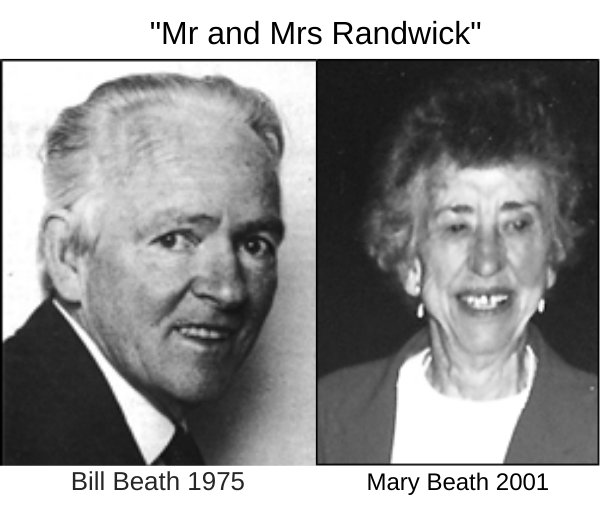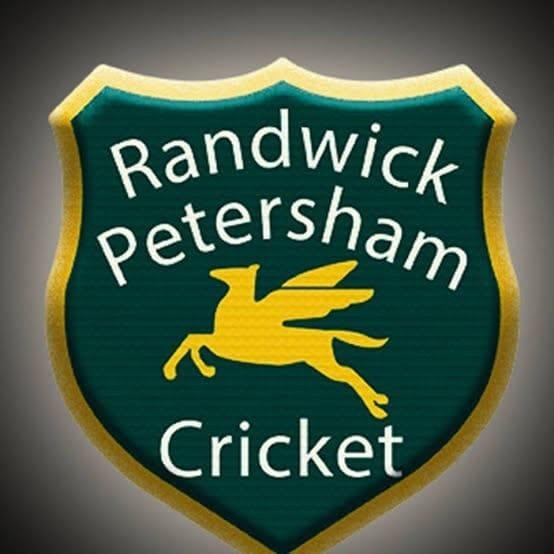Bill Beath 1921-87
Randwick Petersham Cricket Club | June 04, 2024
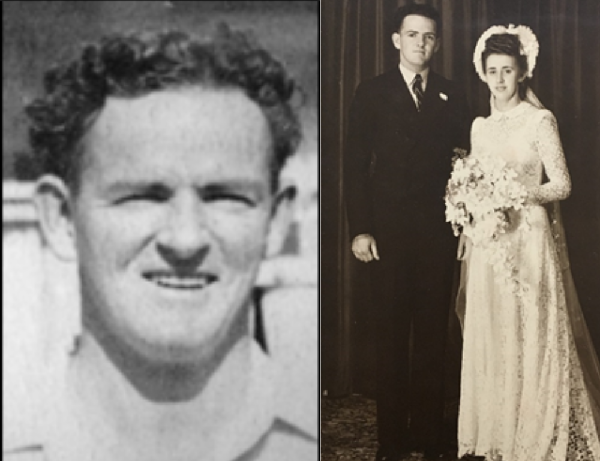
As a fiery and aggressive right-arm opening bowler, Bill Beath earned a reputation as one of Sydney Grade Cricket’s more eccentric characters. “Snarler” was rather an apt nickname for a man who seemed to change personality with a cricket ball in his hand. There are few Randwick players during Bill’s time who don’t have a “Snarler” story to tell.
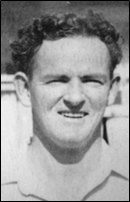
Neville Ray James Beath was born at Gooloogong in country NSW on 12 November 1921. No-one seems to know where the name “Bill” came from, but anyone who knew him says he was never known by anything else. And like many country lads, he went to school in Sydney, completing his education at St Joseph’s College before joining the Petersham club in 1941-42 where his reputation preceded him, playing his first match in 1st Grade. He took 1-20 against University on debut, a match where Sid Barnes made 165. The following round against Manly at Manly Oval he headed the bowling with 4-45, while top-scoring in the second innings, belting 54 when quick runs were required.
Bill played with Petersham for five seasons taking 96 wickets in 1st Grade and took out the bowling honours on two occasions with 35 wickets for the season. In his final season, 1945-46, he took 7-23 to blast out Paddington for 77 in an hour. Throughout his time with Petersham he played spasmodically due to his active service as a gunner in the Australian Army.
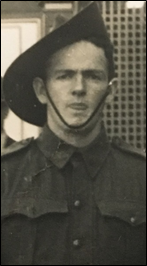
Gunner Bill Beath 1942-45
With the war over, in 1946-47 the right-arm medium-fast bowler joined Randwick in a move which was to be the beginning of a life-long association with the club and one which would establish him as one of the great contributors in its 101 years history. That season was also a good one for Bill, being selected for NSW after taking an amazing 6-9 and 2-18 for Randwick against Glebe. Bill often told the story about that bowling effort, claiming he arrived home at dawn after a “wild night on the town” but the only affect the drink they consumed had on him was to “fire him up”. After that performance, Bill never had regard for any suggestion that players should have an early night before a big match!
Three years later, Glebe was again on the receiving end of a Bill Beath onslaught with the cagy new-ball bowler taking an astonishing 6-19 and 7-15 (13-34) to have them out for 34 and 48. There were seven “ducks” in that second dig. Bill was “assisted” by Ernie Toshack who took the other seven scalps returning 4-24 and 3-18. Two games later, Bill knocked over Waverley for just 49, taking 6-30 in the process. Once again Toshack was the only other bowler used, returning 4-17.
While Bill was handy with the bat at the lower end of the order, his skipper Jack Chegwyn made a good call in 1950-51 sending him in with regular opener John Troy. The pair flogged the Northern District attack at Waitara Oval for 139 in just 109 minutes. Bill then helped bundle out the Rangers with a 3-29 effort. That performance saw Bill given more responsibility with the bat and three years later he hit a career-best 377 runs in 1st Grade with 87 against Paddington at Rushcutters Bay his best. And while he dearly would have liked the extra 13 runs to bring up a maiden century, he had another chance the following summer getting even closer but falling a frustrating six runs short.
On that occasion, batting no. 9, Beath joined no. 8 Leon Hall and the pair thrashed the Cumberland attack at Parramatta Park to the tune of 153 in just 92 minutes. Hall made 66 while Bill scored 94 with 12 fours and a six. That performance broke the club record for the eighth wicket previously held by Alan Cripps and Jack Engle with 119 against St George in 1951-52. The new record was never broken.
Beath’s batting skills in no way diluted his bowling ability and he continued to be one of Randwick’s most consistent wicket-takers. In 1951-52, Randwick won the 1st Grade premiership with Beath a major contributor. He took 34 wickets at just 18.50 each while taking five or more wickets in an innings three times. His best was 7-65 against Paddington. He also made 329 runs that season with 51 his highest score.
One of Bill’s best performances which clearly displayed his attacking flair, occurred in 1953-54 playing Petersham-Marrickville at Coogee. Randwick had declared at 7-203 with Petes well on track to win at 6-192. But the “never-say-die” Beath gave it his all and in an amazing finish he took the last four wickets for 10 runs to have them out for 202 and give his side a win by one run! Bill’s 5-43 that day ran him into a bit of form as the very next match, the hapless Glebe batting line-up received another pasting from Bill before rain stopped play at 8-85 when he had taken 6-37.
In 1955-56, the 34 year old was appointed 1st Grade captain following the retirement of the long-serving Jack Chegwyn. He led by example that season scoring 304 runs while taking 34 wickets to take out both the batting and bowling awards. He took five wickets in an innings three times with 6-37 playing North Sydney his best. His top score was 49*.
Bill captained the 1st Grade side for five seasons until the end of 1959-60. However, for the five seasons thereafter, he dropped to 2nd Grade, captaining the team as a means of developing the up-and-coming cricketers. In his later years, he would only take the ball to remove some troublesome batsman before throwing it back to the younger bowlers to “finish off”. His snarling attitude towards umpires hadn’t abated however, and one can only wonder how often he may have seen the inside of a Judiciary had he been playing in the current day and age.
During that stint in 2nd Grade, he showed he had lost none of his ability despite his advancing 40 years. While he bowled a mixture of pace and off-spin, he took 202 wickets in those five seasons with 56 in 1962-63 and 50 the following summer. In his 56 wickets season, he took a career-best 8-27 against Paddington. He also took 6-67 against “old favourite” Glebe. The next season he took another “eight-for” with an 8-34 performance against NDs. He also returned 6-22 against Mosman while playing St George in a losing semi-final, he took 5-49.
When he retired from play at the end of 1966-67, he did so with 518 1st Grade wickets at 17.80 and 745 in all grades at the remarkable average of just 15.84. Of those 1st Grade wickets, 422 were with Randwick and 96 were from his time at Petersham. He also scored 2,829 1st Grade runs with Randwick and 323 with Petersham for a total of 3,152. In all grades he made 4,367 runs.
Bill played for NSW seven times between 1946 and 1948 taking 11 wickets with 2-20 his best. Interestingly, in his second season of first-class cricket, Randwick’s 1st Grade scorer David Sherwood was appointed official scorer at the Sydney Cricket Ground for Sheffield Shield matches. Possessed of an excellent late in-swinger, Bill was the famed Ray Lindwall’s opening bowling partner, eventually losing his spot when Keith Miller transferred from Victoria.
In 1949-50, the Randwick committee took particular notice of the “modern approach” to coaching with the result it appointed Bill as Official Coach of the Saturday morning coaching classes. The results were outstanding with Bill taking a number of lads under his wing and moulding them into a team which won the A W Green Shield competition.
While he was a brilliant cricketer for Randwick, it was as an administrator Bill Beath really stamped his mark on the club. He became club President in 1965-66 and in his first year was instrumental in bringing the famous West Indian fast bowler, Wesley Hall to Randwick for a season. In 1966-67 he became Randwick’s 14th Life Member and for the following 13 years, Bill and his lovely wife Mary, were regarded as nothing less than “Mr and Mrs Randwick” with their presence at Coogee Oval as regular as their occupancy on the balcony of their home unit overlooking the ground, directly behind the bowler’s arm.
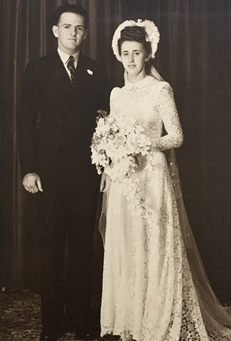
Bill and Mary married in 1946
It was a sad occasion in 1978 when the Coogee Public School headmaster was forced to vacate the President’s chair because of the onset of the insidious Alzheimer’s disease, a condition which eventually took his life in 1987 at just 66 years of age. Mary continued to assist with afternoon teas and maintained her interest in the club and the many friends she made through cricket over the years. She died in 2005 aged 81. Their passing brought to an end a special era in the history of Randwick Cricket.
